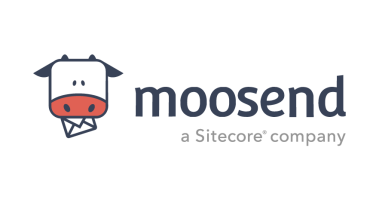
Small to medium-sized businesses (SMBs) have it tough. The challenges of starting, running and growing a business in a struggling economy notwithstanding, they must often juggle conflicting demands.
On the one hand, many SMBs offer everything consumer research indicates customers want: innovative products, keenly priced with a great brand story and solid ethos, sold with a deeply personal touch.
On the other, all of these attributes can be threatened by outside factors such as competition, price rises, labour shortages, the lingering shockwaves of a global pandemic and changing consumer behaviour.
Savvy entrepreneurs and marketers are using a range of tactics to help them weather these difficulties, making the most of already loyal customers and their unique propositions to grow. Here, founders and marketers from leading SMBs explain how they’re more than up to the task of maintaining a loyal customer base through thick and thin.

Deliver experience beyond the product
Emily Lui
Co-founder and chief commercial and operations officer at Cutter & Squidge, a family-run, all-natural bakery
One of our big levers is user content. People have posted themselves receiving brownies, talking about how great they were and how loved they felt by the person sending them.
When we send emails, yes you can click to buy but there’s more of an education element. We recently sent out an email for our Lunar New Year product, but the email also explains what the Lunar New Year is and that the company founders are Chinese. It resonates better than just sell, sell, sell – which turns people off.
These are challenging times. People are cancelling subscriptions, ingredient costs are rising and finding labour is incredibly difficult. We are customer-led and we have to perform and deliver those moments. We are stifled by the current climate, but there is still opportunity. Self-gifting may have suffered in the cost-of-living crisis but, since Covid, behaviours have changed and now people are buying gifts for other people to let them know they’re thinking about them.
We are working on being the go-to in the UK bakery gifting arena. We’re female-founded, our tins are made in Wales and stamped in London using solar power, and our ingredients are sourced from across the UK. Loyal customers really buy into a strong story and ethos.

Transform email from a sales channel to a content channel
Arjun Koyappalli
General manager at Napiers the Herbalists, a natural healthcare and skincare company
Everyone’s facing a squeeze on costs. We try to manage that as much as we can, but supply chain issues and rising costs can be tricky for us because we are a brand that tries to be available for everyone. We’re not premium, we’re trying to keep our costs as low as possible. The level of competition for small or large brands coming into the space is also always a challenge.
Just hitting someone with a 10% discount can easily get lost in their inbox, so A/B testing subject lines and content matters. We want to offer unique content. We’re not at the stage of using AI for personalisation just yet but it will be part of the strategy in the coming weeks or months.
People forget that content is often the best way of personalising your brand to that customer. Sending links to a skincare customer for an article that is interesting and engaging about rosacea, for example, really helps draw attention. From there, you can build your authority as a place for knowledge and information. That takes someone from making a one-time purchase because they’ve seen a good offer to a loyal customer.
That said, email marketing is key for loyalty and another important channel for us is paid social media. You know roughly when the products might have been used by the customer and then resurfacing that same product in an ad on Facebook, Instagram or other channel – these are both ways you can get very granular with building loyalty.

Pivot to address new trends while providing great service
Sarah-Louise Fairbu
Founder of Imp & Maker, a luxury gift hamper company
We have always shipped gifts to Europe but that’s so difficult for us now, often costing far more to send than the cost of the gift. We’re working on solutions, but in general, the answer for us is to improve sales at home. One element has been to focus on the corporate gifting market, because the cost-of-living crisis is making it far more important for businesses to reward their staff.
The whole ethos of the company is putting ourselves in the customer’s place and wondering how we’d feel if we were spoken to in a certain way, or if we couldn’t get through to the business if we had a problem.
Customers can’t believe it when we ring them to ask how we can put something right, whether a shipment has been held up or something has smashed in transit. It sounds incredibly simple but, in a world where everyone is striving and fighting to be the biggest and the best and outsourcing different departments, some of that magic inevitably gets lost.
It’s a challenge when you’re scaling a business – how do we keep that human element in everything we do? We benefit from people sharing that they love Imp & Maker. Their network sees it and we get loyalty and validation through referral.
Attention to detail matters – whether it’s personal customer service or the unboxing experience. Will any part of the packaging annoy the customer? How can they dispose of it? Will it make a mess of their kitchen? That genuinely makes a difference and enhances loyalty.

Support customers to help them get the best experience
Jennifer Liao
Co-founder of Mìlà, an authentic Chinese street food delivery company
As a restaurant, we had to figure out what we could do in a different business line to keep going during the Covid shutdown. People weren’t going to the grocery store or getting takeout, and soup dumplings weren’t available in stores, so we found a niche.
Marketing was also a lot cheaper during that time, so we could try something untested. Ecommerce is an unusual place to start in the frozen food category. Organic social media is important for education – we put a lot of content out in terms of how to cook the dumplings, and what equipment and methods you need to steam it. We wanted as many shots on goal as possible to create a good customer experience for Chinese food.
We ran a lot of direct-to-consumer (DTC) ads and gained a lot of impressions. It’s been our secret sauce. We still have to use this DTC channel to make the retail side successful. It doesn’t reach every single customer but creates enough of a baseline where people tell each other about it, creating a flywheel where there’s an educated audience teaching other people too.

Design and growth is a community effort
Ross French
Co-founder and ecommerce director at Blake Mill, a men’s fashion label specialising in designer dress shirts
Economic and social challenges are an issue but we can’t afford to cherrypick the ones we’re going to work towards. Our view is that it’s not enough to be good quality but have no view on ethics or a place in your local community. And you can’t be community-focused but have a rubbish product. When people are forced to take such a critical eye on what they’re spending, it’s important to cover every piece of the puzzle and take every piece seriously.
We recently had to put in a price increase having not done so for 18 months despite our rising costs. We communicated to customers that we think the product is still worth paying for, and we are very transparent that we don’t want to outsource to a cheaper supplier. That goes against our values and it would be like removing one of the tentpoles.
Engaging people with the brand, its story, values, what we do and why we do it has been very effective. We’ve been putting a lot of effort this year into building a community.
We’re very focused on design and print so we’ve created a WhatsApp community to get customers to engage on that topic. Now we have an extraordinarily active community of people, throwing ideas into the ring when it comes to print and design, which is fantastic. We started it over email, reaching out and getting people to vote on new designs and we’ve tried to progress that into much more of a dialogue.
It really struck us that most of the discussion on that group is not between staff and customers, but between customers themselves. The direction we’re aiming for is a social network-type platform.
Bringing the store to the inbox
How Earl of East built a loyal following by inspiring and entertaining online customers
Earl of East, founded by Niko Dafkos and Paul Firmin, started as a stall at a local market and grew into a lifestyle brand. Creating a sense of community has always been at the core of their business, and that extends to their marketing. They started using Mailchimp in 2016 to communicate with candle-making workshop participants, but they soon wanted to do more.
They imagined a way to engage and inspire their audience with content that felt like an extension of conversations they love to have in stores – sharing their favourite neighbourhood spots and things to do around London, as well as tips for hosting, cooking, and gifting.
Through Covid, email sustained the customer loyalty they’d been building since their market stall days. They’ve since continued to grow that strategy.
Dafkos explains: “When we send content over the weekend with things to do, one of the five things to do is always come and visit us. My community isn’t always in the market for buying another candle, or buying another glass, but they’re always in the market for being entertained and inspired. And I think that’s kind of the plus, the add-on.”
Discover how Mailchimp can help you get your email marketing strategy right
Disclaimer: The views, information and opinions expressed in this article are those of the people interviewed and do not necessarily represent or reflect the views of Intuit, Mailchimp or any of its cornerstone brands or employees. The primary purpose of this article is to educate and inform. This article does not constitute financial or other professional advice or services.

Small to medium-sized businesses (SMBs) have it tough. The challenges of starting, running and growing a business in a struggling economy notwithstanding, they must often juggle conflicting demands.
On the one hand, many SMBs offer everything consumer research indicates customers want: innovative products, keenly priced with a great brand story and solid ethos, sold with a deeply personal touch.
On the other, all of these attributes can be threatened by outside factors such as competition, price rises, labour shortages, the lingering shockwaves of a global pandemic and changing consumer behaviour.






